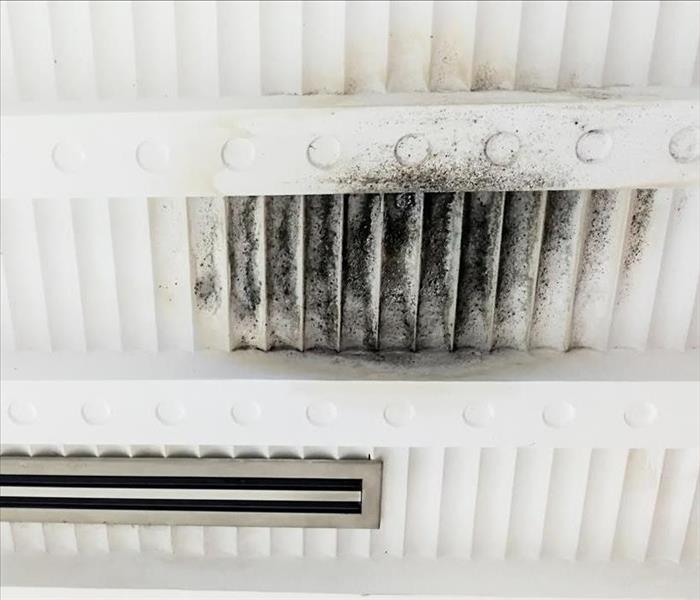Steps To Take for Mold Mitigation
11/18/2021 (Permalink)
There's never a good time to discover a black mold problem in your commercial building in Bath, NC. The steps you take immediately after finding it, however, can make a big difference in how much time it takes to eradicate the problem. Quick detection and response are the keys to making sure any mold issue you have doesn't turn into an utter disaster.
4 Steps to Deal Mold
Contact Professionals
The first thing you need to do when you notice a fungus problem is called mold damage mitigation specialists to address it. Within hours of contact, they can be on-site to start the mold cleanup process:
- Assess the damage
- Tear out ruined materials
- Disinfect surfaces
- Dry the affected area
- Rebuild the structure
This team can also address any water damage that caused the mold problem, thus preventing any more secondary issues. It is in your best interest to get remediation started as soon as possible. The earlier the experts can get rid of the existing mold growth, the less chance it has to spread.
Cut Off Water Supply
The most common cause of mold in a building is a moisture problem. Water rushing to an unfixed leak is just going to keep feeding the mold. If you have a hidden leak, you need to cut off its source until it can be repaired. Shut down the water main to the building until your plumber can fix the problem. Call for repairs immediately, and don't turn the water back on until they're complete. You may not have been able to prevent the leak, but you can keep it from causing more damage once it's discovered.
Shut Down HVAC System
Black mold spores are often airborne. It doesn't do the mitigation team any good to seal off the affected area if your HVAC system is still delivering spores throughout the building. To isolate the problem so that it can be dealt with effectively, you must turn off the air conditioning system until the cleanup process is finished. Keep windows closed to minimize airflow until you receive confirmation that the final mold test after mitigation is negative.
Call Your Insurance Provider
The standard commercial property policy doesn't necessarily cover mold damage. To find out what your options are, call your agent to review whether the cleanup can be paid for by your existing coverage. A good reason to act quickly when you discover fungus is that if you allow the problem to get out of hand, even a mold policy won't cover it because the insurance company is likely to consider your behavior negligent. However, if you can show that you responded in a timely manner, your standard policy may cover mitigation if it was the result of a covered peril.
No business owner likes to find black mold in his or her building. If you do discover it, however, don't ignore it. Quick repair and mitigation are crucial for getting rid of mold growth and ensuring that it doesn't come back. The faster and more thorough your response, the better chance you have of getting your business back to normal as soon as possible.






 24/7 Emergency Service
24/7 Emergency Service
